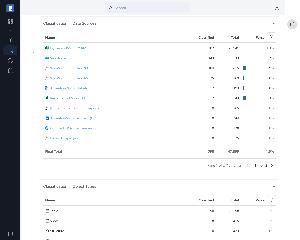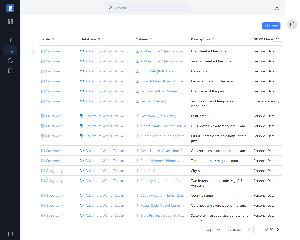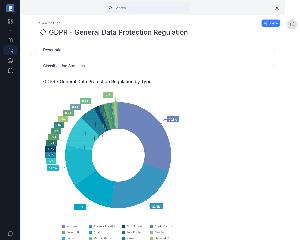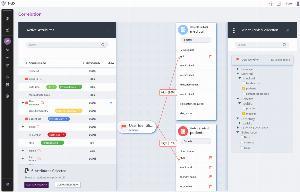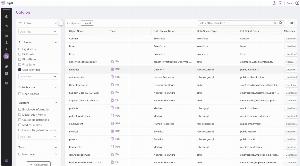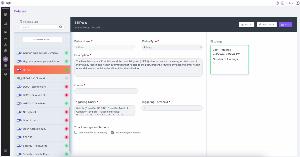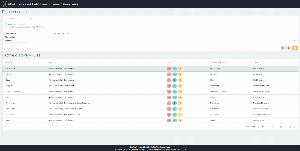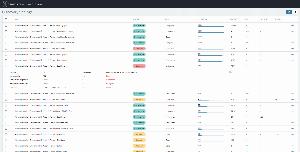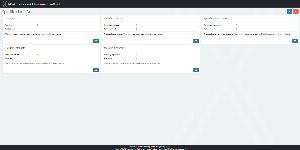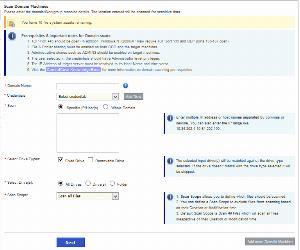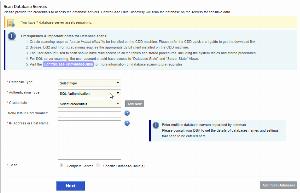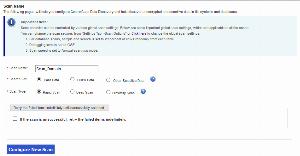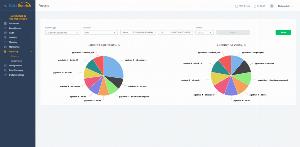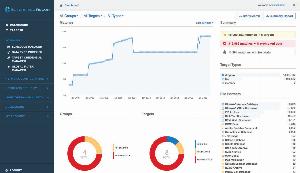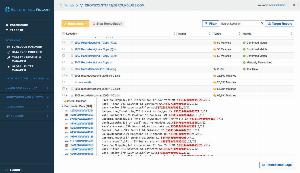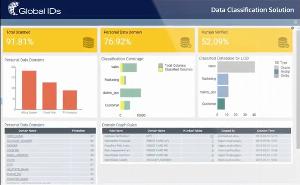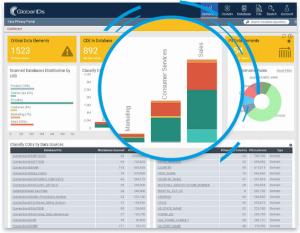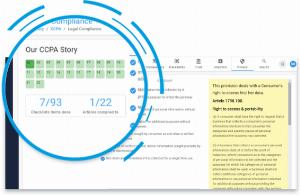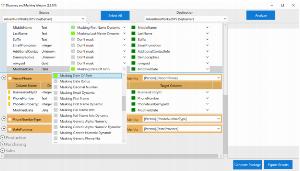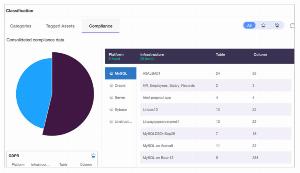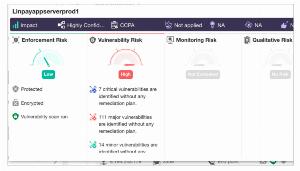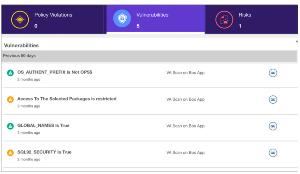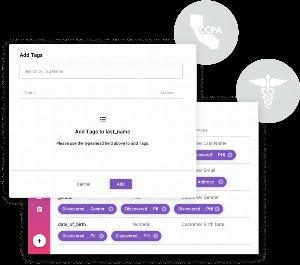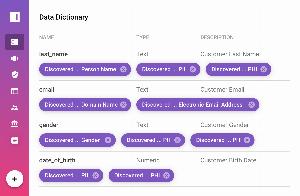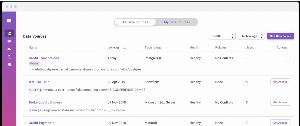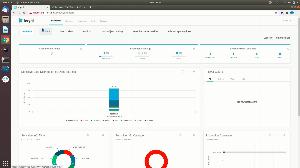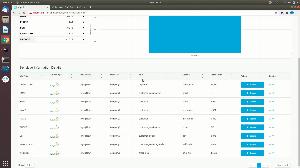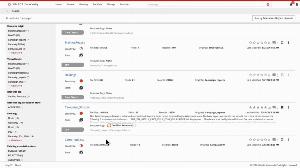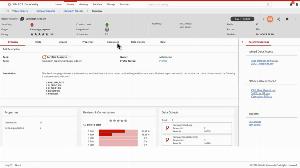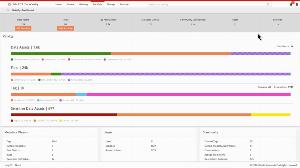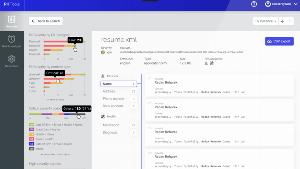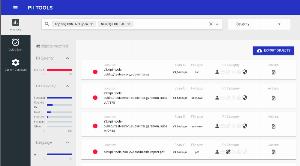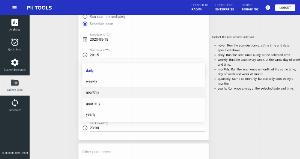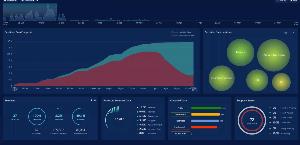Sensitive data discovery tools for PostgreSQL
List of sensitive data discovery tools
In recent years many international organizations, countries, states etc. have introduced strict regulations regarding sensitive data storing and processing (GDPR in EU, CCPA in California state or PDBP in India just to name a few) to ensure that companies and organizations handle personal information correctly. This should motivate organizations to revise their data protection policies and identify all private data they collect and process. Invaluable help with this tedious task are sensitive data discovery tools.
Dataedo
Scan your databases and find and tag fields holding personal data so you can know what data you are processing and where to comply with data protection regulations such as GDPR or CCPA.
| Data Activity Monitoring: |
|
|---|---|
| Data Classification: |
|
| Encryption, blocking, masking and quarantining: |
|
| Export: | HTML,MS Excel,PDF |
| GDPR: |
|
| PHI (Protected Helath Information): |
|
| PII (Personal Identifiable Information): |
|
| Runs on: (for desktop): | Windows |
| Structured Data: |
|
| Ustructured Data: |
|
BigID
BigID lets you find sensitive and critical data anywhere with transformative data discovery: combining next-gen ML cataloging, classification, cluster analysis, and correlation across all types of data.
| Data Activity Monitoring: |
|
|---|---|
| Data Classification: |
|
| Encryption, blocking, masking and quarantining: |
|
| Export: | - |
| GDPR: |
|
| PHI (Protected Helath Information): |
|
| PII (Personal Identifiable Information): |
|
| Runs on: (for desktop): | - |
| Structured Data: |
|
| Ustructured Data: |
|
BizDataX
BizDataX uses metadata inspection, data sampling, and various discovery rules, algorithms and heuristics to automate the process of locating sensitive data. Sensitive data discovery checks multiple systems, databases, hundreds or thousands of tables, and possibly billions of records.
| Data Activity Monitoring: |
|
|---|---|
| Data Classification: |
|
| Encryption, blocking, masking and quarantining: |
|
| Export: | - |
| GDPR: |
|
| PHI (Protected Helath Information): |
|
| PII (Personal Identifiable Information): |
|
| Runs on: (for desktop): | Windows |
| Structured Data: |
|
| Ustructured Data: |
|
ControlCase Data Discovery
ControlCase Data Discovery services help you to find and protect sensitive information quickly and cost effectively. It finds unencrypted data in any type of file across the whole network from one central location. CDD is not constrained by file types; rather it empowers to search the whole technical environment for sensitive data.
| Data Activity Monitoring: |
|
|---|---|
| Data Classification: |
|
| Encryption, blocking, masking and quarantining: |
|
| Export: | - |
| GDPR: |
|
| PHI (Protected Helath Information): |
|
| PII (Personal Identifiable Information): |
|
| Runs on: (for desktop): | Windows |
| Structured Data: |
|
| Ustructured Data: |
|
DataSunrise
DataSunrise Database Security enables companies to pinpoint where sensitive data resides in all Databases and Data Warehouses, ensuring ongoing compliance and effective enforcement of monitoring and security policies. Intelligent automatic detection of relationships between tables when some of them contain sensitive PII or PHI data using Database Activity Monitoring, existing foreign keys, constraints in the table’s definition, and statistics about queries from the database.
| Data Activity Monitoring: |
|
|---|---|
| Data Classification: |
|
| Encryption, blocking, masking and quarantining: |
|
| Export: | - |
| GDPR: |
|
| PHI (Protected Helath Information): |
|
| PII (Personal Identifiable Information): |
|
| Runs on: (for desktop): | Windows |
| Structured Data: |
|
| Ustructured Data: |
|
Enterprise Recon
Enterprise Recon is a smart data discovery solution by Ground Labs that enables organizations to find and remediate personally identifiable information (PII) and sensitive information across the broadest range of structured and unstructured data -whether it’s stored across servers, on desktops, email, and databases, on-prem and in the cloud.
| Data Activity Monitoring: |
|
|---|---|
| Data Classification: |
|
| Encryption, blocking, masking and quarantining: |
|
| Export: | CSV,HTML,PDF,XML |
| GDPR: |
|
| PHI (Protected Helath Information): |
|
| PII (Personal Identifiable Information): |
|
| Runs on: (for desktop): | - |
| Structured Data: |
|
| Ustructured Data: |
|
Global IDs
The Global IDs Enterprise Data Automation (EDA) platform comprises a set of core functions, i.e., automated sensitive data discovery, data profiling, data classification, data lineage, data quality, and more, thereby facilitating in compliance with regulations, such as GDPR and CCPA.
| Data Activity Monitoring: |
|
|---|---|
| Data Classification: |
|
| Encryption, blocking, masking and quarantining: |
|
| Export: | - |
| GDPR: |
|
| PHI (Protected Helath Information): |
|
| PII (Personal Identifiable Information): |
|
| Runs on: (for desktop): | - |
| Structured Data: |
|
| Ustructured Data: |
|
Hush-Hush Data Masking
Hush-Hush Data Masking tool helps you find your and your customer's sensitive data, classify it, anonymize it, and comply with GDPR, CCPA, HIPAA / HITECH, and GLBA requirements. It discovers sensitive data in databases, files, HL7 and EDI messages, and text., while anonymizes sensitive data both on-premises and in the cloud.
| Data Activity Monitoring: |
|
|---|---|
| Data Classification: |
|
| Encryption, blocking, masking and quarantining: |
|
| Export: | - |
| GDPR: |
|
| PHI (Protected Helath Information): |
|
| PII (Personal Identifiable Information): |
|
| Runs on: (for desktop): | Windows |
| Structured Data: |
|
| Ustructured Data: |
|
IBM Data Risk Manager
IBM Data Risk Manager identifies high-value, business-sensitive information assets that are at risk from internal and external threats. It provides an end-to-end view of business metadata associated with crown jewel data. It leverages real-time information to efficiently discover sensitive information assets and yet-unidentified data stores.
| Data Activity Monitoring: |
|
|---|---|
| Data Classification: |
|
| Encryption, blocking, masking and quarantining: |
|
| Export: | - |
| GDPR: |
|
| PHI (Protected Helath Information): |
|
| PII (Personal Identifiable Information): |
|
| Runs on: (for desktop): | Mac OS,Windows |
| Structured Data: |
|
| Ustructured Data: |
|
Immuta
Immuta automatically scans cloud data sources, detects sensitive data, and generates standard tagging across multiple compute platforms so you can eliminate manual, error-prone processes and get universal data access control and visibility into sensitive data. After registering data sources with Immuta, data teams can automatically classify and tag direct, indirect, and sensitive identifiers.
| Data Activity Monitoring: |
|
|---|---|
| Data Classification: |
|
| Encryption, blocking, masking and quarantining: |
|
| Export: | - |
| GDPR: |
|
| PHI (Protected Helath Information): |
|
| PII (Personal Identifiable Information): |
|
| Runs on: (for desktop): | Windows |
| Structured Data: |
|
| Ustructured Data: |
|
Kogni
Kogni discovers, secures, and monitors sensitive data in enterprise data sources. It discovers sensitive data in all types of file formats including unstructured text files and images for comprehensive enterprise data security. Kogni’s approach to data security reduces the impact of a data breach, helping enterprises comply with regulations, and also enables data governance initiatives by monitoring for policy violations.
| Data Activity Monitoring: |
|
|---|---|
| Data Classification: |
|
| Encryption, blocking, masking and quarantining: |
|
| Export: | - |
| GDPR: |
|
| PHI (Protected Helath Information): |
|
| PII (Personal Identifiable Information): |
|
| Runs on: (for desktop): | - |
| Structured Data: |
|
| Ustructured Data: |
|
Lumada Data Catalog
Lumada Data Catalog accelerates data discovery and metadata tagging to secure sensitive data, infer hidden relationships, and accelerate data self-service and insights.
| Data Activity Monitoring: |
|
|---|---|
| Data Classification: |
|
| Encryption, blocking, masking and quarantining: |
|
| Export: | - |
| GDPR: |
|
| PHI (Protected Helath Information): |
|
| PII (Personal Identifiable Information): |
|
| Runs on: (for desktop): | - |
| Structured Data: |
|
| Ustructured Data: |
|
PII Tools
PII Tools empowers you to scan your inventory and reveal any personal or sensitive data and analyze discovered data based on its severity, content, and context. In addition, you can report, delete, or quarantine suspect personal information and keep up with regulations with scheduled scans.
| Data Activity Monitoring: |
|
|---|---|
| Data Classification: |
|
| Encryption, blocking, masking and quarantining: |
|
| Export: | - |
| GDPR: |
|
| PHI (Protected Helath Information): |
|
| PII (Personal Identifiable Information): |
|
| Runs on: (for desktop): | - |
| Structured Data: |
|
| Ustructured Data: |
|
Solix Common Data Platform (CDP)
Solix Common Data Platform (CDP) provides data officers with a single pane of glass view into the complete enterprise data landscape (both production & non-production). Data officers can quickly discover and report on - industry-standard sensitive information such as PII, PCI, PHI using out-of-the-box algorithms and confidential information that is unique to their organization using custom algorithms.
| Data Activity Monitoring: |
|
|---|---|
| Data Classification: |
|
| Encryption, blocking, masking and quarantining: |
|
| Export: | - |
| GDPR: |
|
| PHI (Protected Helath Information): |
|
| PII (Personal Identifiable Information): |
|
| Runs on: (for desktop): | - |
| Structured Data: |
|
| Ustructured Data: |
|
Spirion
Spirion empowers you to automatically and persistently discover, classify, understand, control, and protect sensitive data in a way that ensured compliance but also allowed for business agility. It automates sensitive data classification throughout the data lifecycle for optimal protection and user access. In addition, it lets you create automated playbooks with a broad, flexible range of remediation actions to save time and ensure consistent treatment of sensitive data types.
| Data Activity Monitoring: |
|
|---|---|
| Data Classification: |
|
| Encryption, blocking, masking and quarantining: |
|
| Export: | - |
| GDPR: |
|
| PHI (Protected Helath Information): |
|
| PII (Personal Identifiable Information): |
|
| Runs on: (for desktop): | Mac OS,Windows |
| Structured Data: |
|
| Ustructured Data: |
|
Discovering sensitive data can be done manually, simply by looking into each data source and identifying those with personal information inside. This solution, however, is very time-consuming and prone to mistakes. Much better is to use one of sensitive data discovery tools which does all that work automatically. Many of these solutions can work not only with structured, but also with semi-structured and unstructured data. Furthermore, some of them offer periodic synchronization with data sources, to automatically classify newly added information.
Why sensitive data classification is important? First and foremost, it is sign of care for clients and employees. No privacy data should leak, nor it should be seen by unauthorized people. Each organization should store only this information that are necessary for its’ functioning and collect them only with explicit consent (both are currently enforced by law). Not following rules can have severe consequences such as:
• Financial fines – London based pharmacy Doorstep Dispensaree Ltd was fined £275,000 for leaving medical files unprotected,
• Clients’ loss – PCI Pal conveyed a survey in which 83% of US customers claimed, they would stop spending with a business for several months in the immediate aftermath of a security breach,
• Legal prosecution – according to the Data Protection Act 2018 in UK, employee can face prosecution for data protection breaches,
• Loss of reputation – today’s more aware of cybersecurity customers may refuse to trust a company which violated data privacy rules.
Sensitive data discovery software is only part of personal information protection policy, although very important part. It is helpful especially when an organization uses many different data sources (files, databases, personal archives) or data regarding several countries, where identifying e.g., ID numbers may get complicated. However even small companies with clients from one region should be aware of private data in their systems, hence it is advised to frequently use one of listed sensitive data discovery software by organizations of any size.
 SQL Server
SQL Server
 Oracle
Oracle
 MySQL
MySQL
 PostgreSQL
PostgreSQL
 Amazon Redshift
Amazon Redshift
 Azure SQL Database
Azure SQL Database
 DBT
DBT
 Google Big Query
Google Big Query
 IBM DB2
IBM DB2
 MariaDB
MariaDB
 SAP HANA
SAP HANA
 Snowflake
Snowflake
 SQLite
SQLite
 Teradata
Teradata
 Vertica
Vertica
